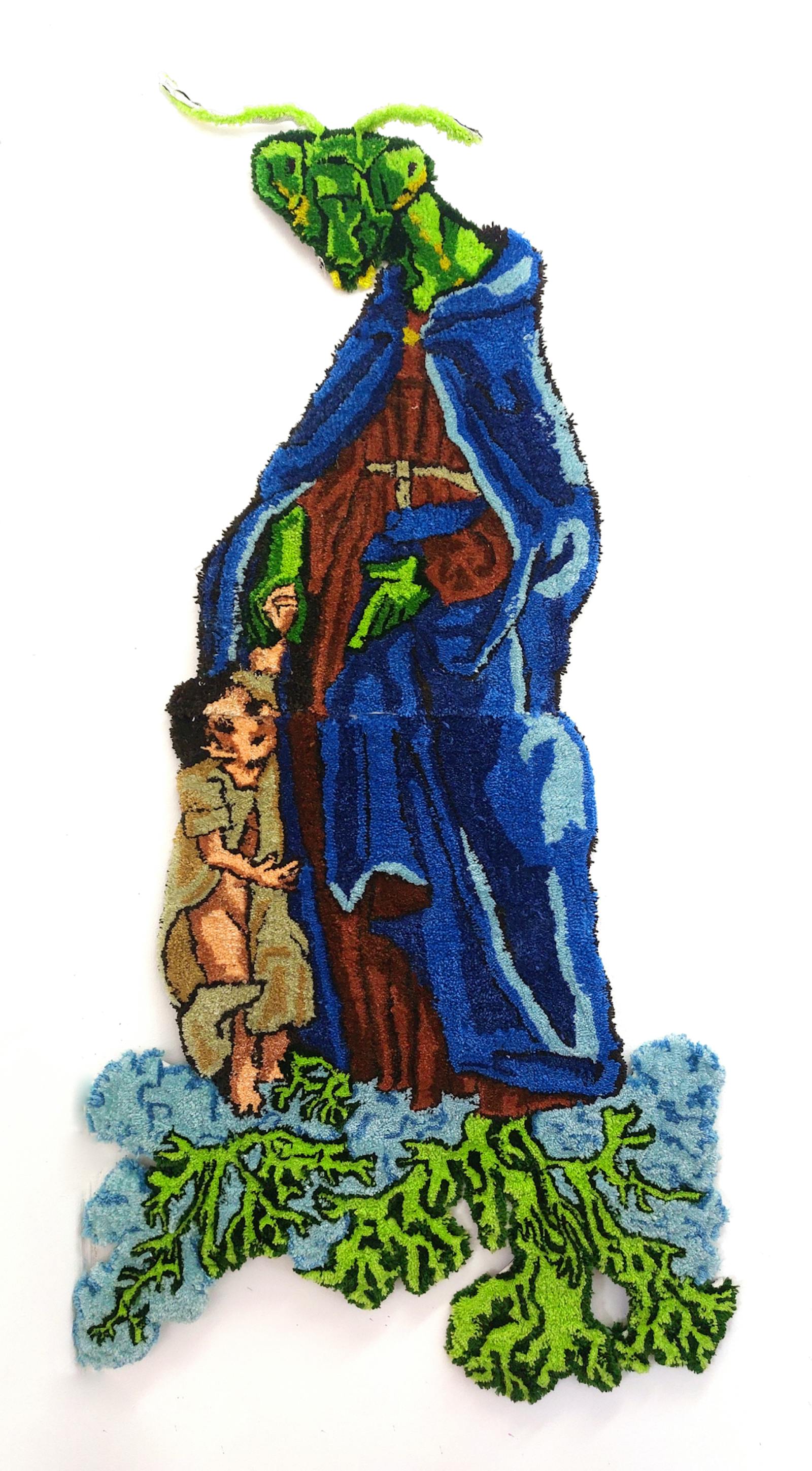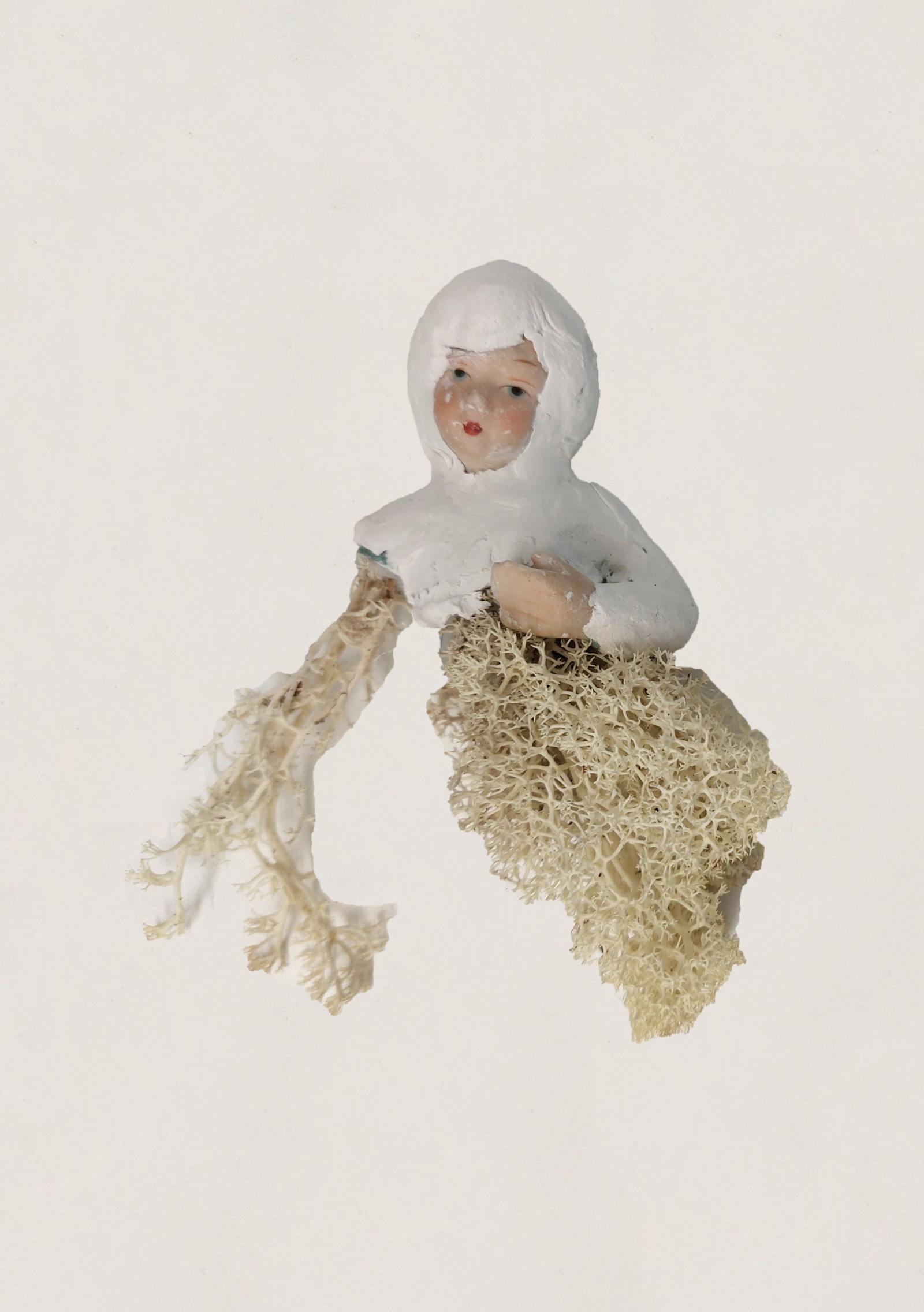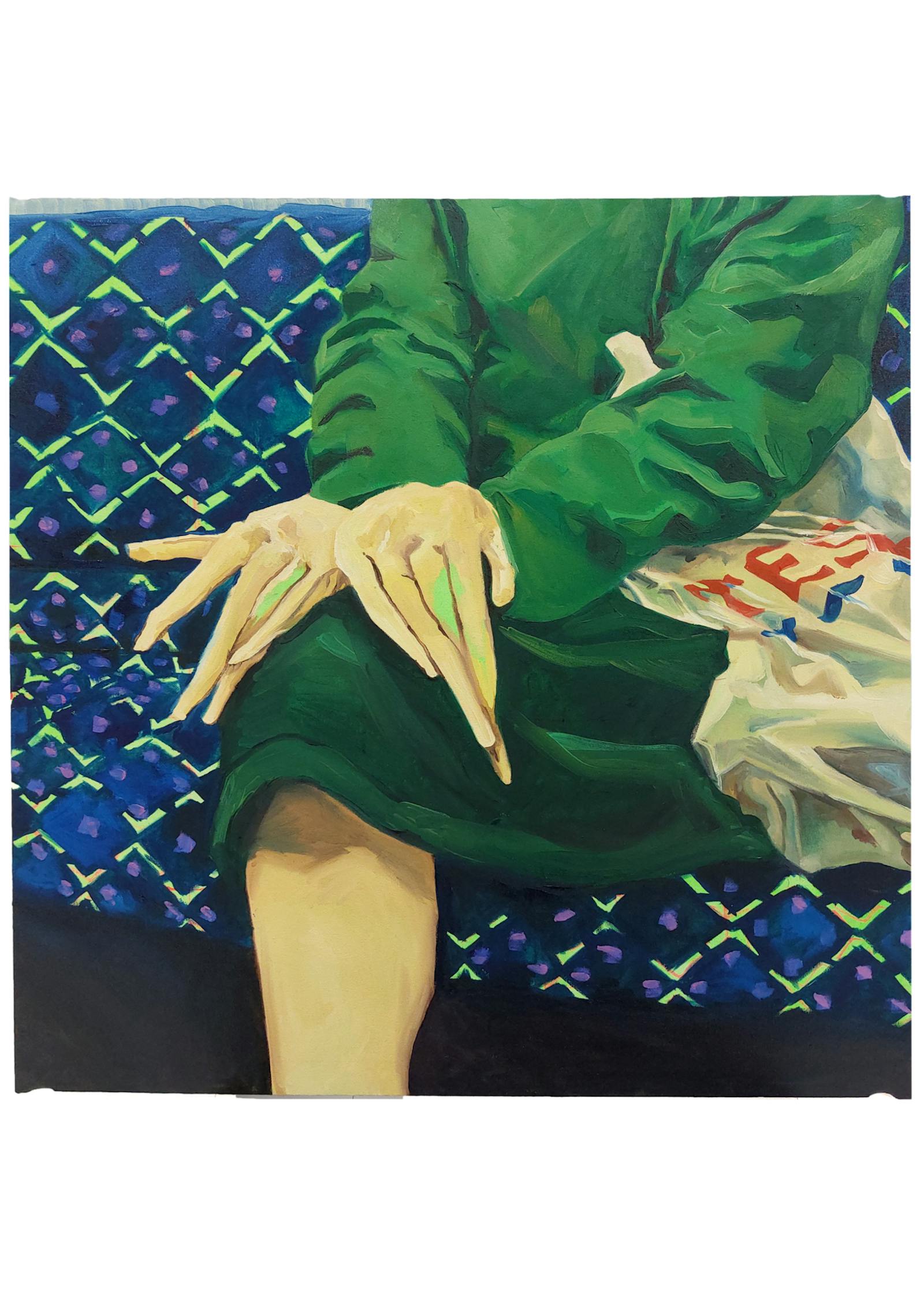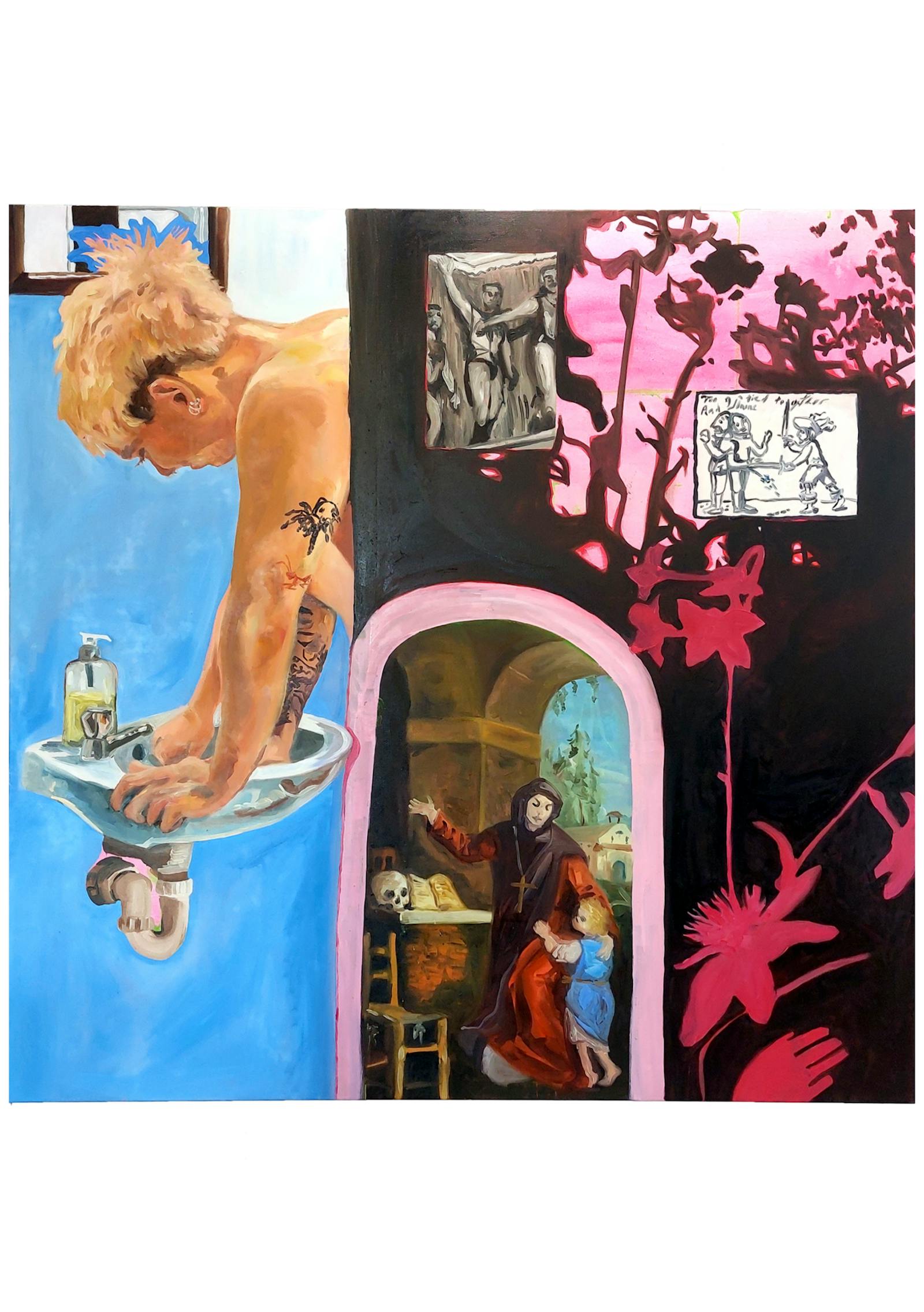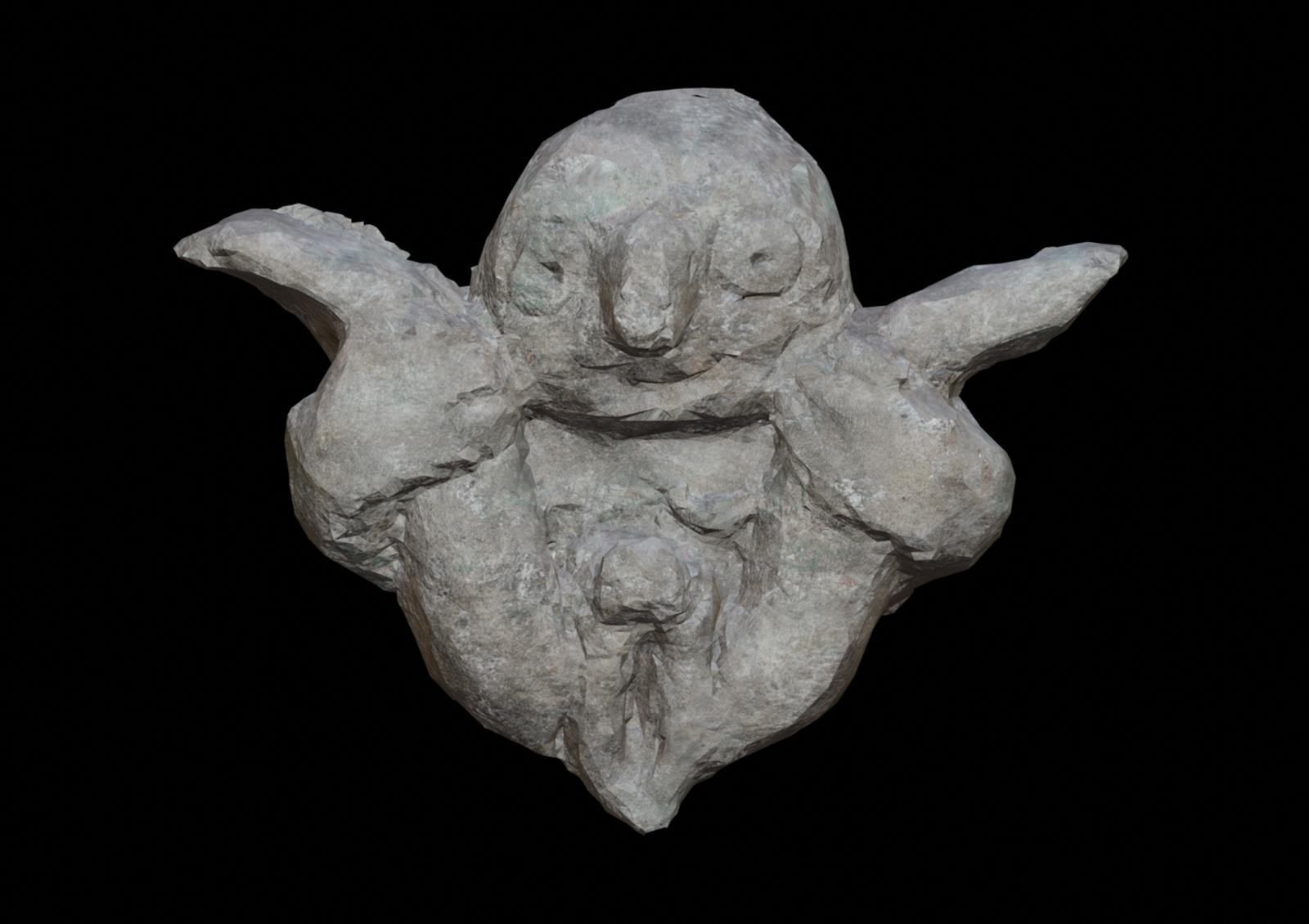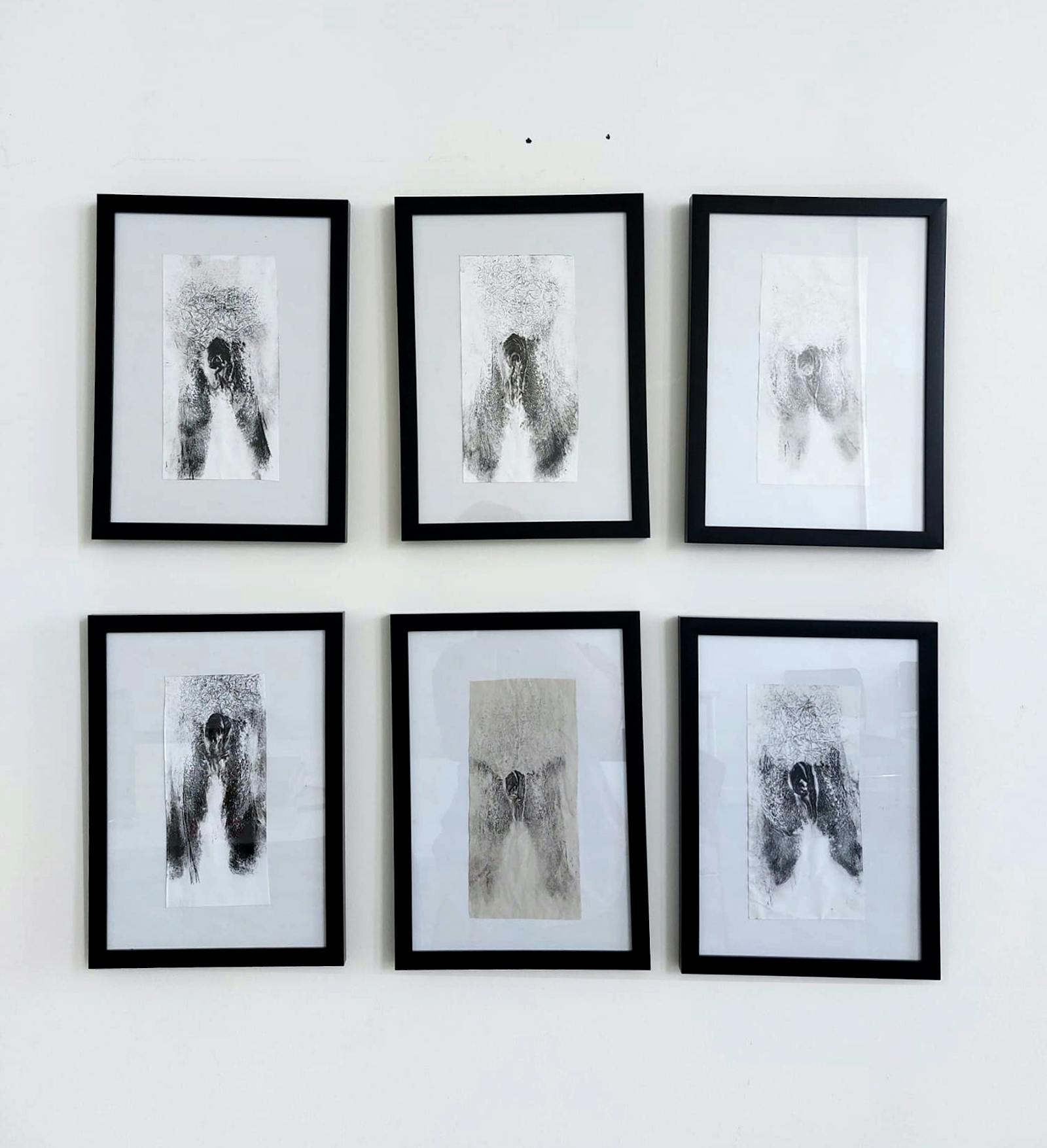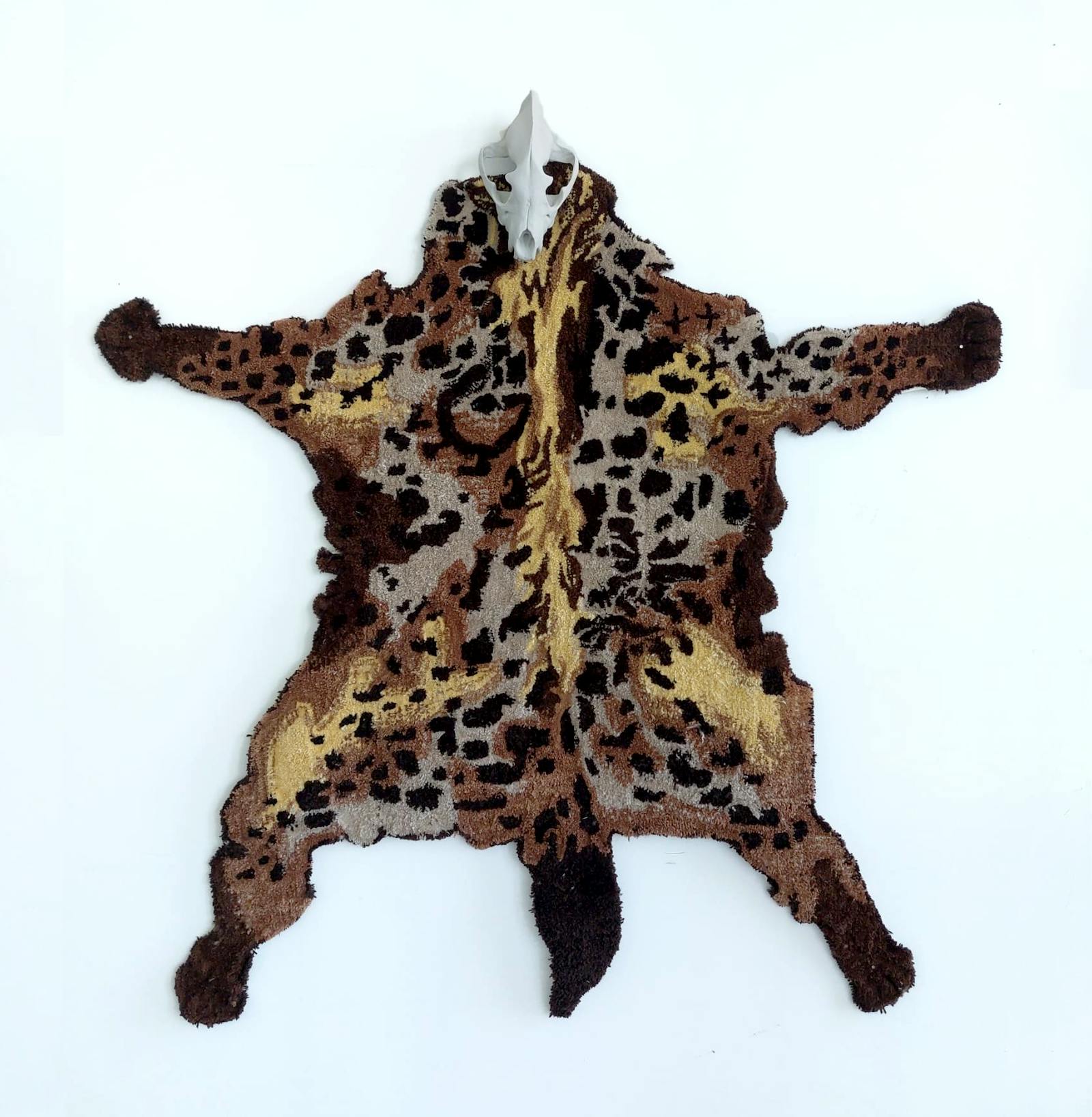Trans Prophets, Queer Idols: Mythology as Method for Speaking on Queerness
Summary
Trans Prophets, Queer Idols explores the critical potential of queer and transgender identities as positions askance from the normative, and the viability of conveying these critical insights through alternative queer mythologies. Across a body of work that includes textiles, painting, film and writing, this project emphasies the malleability of the world seen from such perspectives, presenting autofictional versions of the author’s own lived experience as an opening gambit in a broader queer worldbuilding project.
With a focus on fictioning the trans voice as prophetic voice by reading Paul Preciado’s ‘voice of the crossing’ alongside Federico Campagna’s Prophetic Culture, this text utilises creative nonfictionto explore the liberatory potential of identification with monstrosity and nonhuman embodiment, as well as the impact of historical and cultural traces on an individual’s (dis)identification with norms, finding a trans prophecy informed by these considerations that can articulate a path towards queer utopian alternatives.
Fada
After a month of hyperfixating on family history research, I dream of my mother’s grandfather. The Old IRA man, a direct line between his rebel genes and mine. Before I started looking I knew nothing about him: his was a history very carefully papered over. Generational trauma obfuscated but present, parts disconnected but still gooey, carried forward in our bodies. Case in point: I laugh with the same hissing sound as a grandfather I never met, and a group of moles on my shoulder are the spit of the starry plough constellation from the Irish Citizen Army flag. Is reincarnation a form of political praxis?
Post deed-poll, I officially update my name on the university database and the fada, a character common to Gaelic names, crashes my email account for three hours. Sláinte, Seán. Your name and mine sufficient on their own to disrupt the stable internal workings of a university computer system. There’s something ironic in the fada being the final straw, the catalyst for collapse in a system already proven ill-equipped to cope with change, otherness, shifting categories. Bitterness over feeling surprised when an institution unable to hold my transness also can’t deal with another historically othered signifier, Irishness.
What is revealed by the collapse of a system in response to a name changing, crossing the borders of binary gender and hegemonic language simultaneously, are the ways in which a system is constructed around and for a specific set of expected identities. Code is limited by the expectations and imagination of those who code it in the first place. Duh.
My 2024 side-hustle is that I’m becoming a queer mystic; teaching myself a prophetic language that sprouted from my vocal cords when testosterone began thickening them. I have accepted the possession of my body by the voice of the crossing: we collaborate, become a force of nature; my voice drops to a pitch that doesn’t make me wince when I speak publicly. Paul B. Preciado names this the voice of the border; I am joyfully, intentionally, flaunting that boundary, a nonsensical demarcation between masculine and feminine, with a wandering voice housed in one throat.
Borders are, I have learned, dependant on us all agreeing upon a set of norms, an either/or. Norms are a matter of impressions, repetitions of the same bodies and identities in the same space over and over ad nauseum. The repetition of one kind of body produces a space that fits these bodies without issue, expects those bodies to be present, and then calls into question all others who fit less seamlessly in those spaces.
Expectations become assumptions become norms, and norms begin to be encoded and (re)produced through the design of sociotechnical systems that take the norm as base value; this includes and is not limited to university databases.
To sit outside or adjacent to a norm is to be a body out of place; changeling thing, illegible thing, uncanny valley. Ahmed suggests that one of the experiences central to being a body ‘out of place’ is the disorientation your presence inspires in others. You are the fada in the database, you bring the sense of continuity within a space, an institution, to a grinding, crashing stop. Confusion and anxiety at the registry desk when I turn up in person to demand the updating of my name after my email request is ignored for a month. A body at the limit of language and understanding, somehow speaking, can be disorientating. We become monstrous in this liminal space, we demarcate what is acceptable to others (hint: it isn’t us). Hypervisibility often follows as way of reminding us you are different.
Queer prophecy is the monster speaking, the act of turning this disorientation into a radical proposition for change. A prophet is never fully of the world; it is this disidentification which produces a prophetic perspective that can be formed into critique. If comfort is the thing that renders invisible the machinations of spaces and systems we hope to critique through prophecy, then us queers, us transgressive and uncomfortable bodies, are the perfect prophetic vehicles. In a culture that obsessively categorises, there is an inherent rebellion in being an uncategorisable thing. It doesn’t even need to be intentional; your name itself, uttered like a benediction and a curse, wrecking databases. There’s a power in that.
TL:DR (too long, don’t read); refusing to pass is prophecy. That space of quantum uncertainty in Lock’s writing, feral queer monstrousness speaking in tongues that shake the foundations of the space you are in. Monstrousness is a familiar category for queers and the Irish; a space we fit, moulded around our bodies, fictionalising us as beasts. Maybe we are. Refusal as political act, uncanny disobedience that refuses to trade in the pain or denigration of real people. I would rather be a monster than a coward. Monstrosity reclaimed, because here’s a secret that isn’t a secret: monstrum is the Latin root for monster, but also for demonstrate.
Monstrum: divine omen, portent, sign; abnormal shape. Monsters can be prophets too. Abnormal shape, like a fada that prompts a system meltdown. Another rebel gene passed down: the monster can fucking speak.
The above text is taken from the thesis introduction for Trans Prophets, Queer Idols. Further excerpts or access to the full text are available upon request to the author (contact details at the top of this page).
